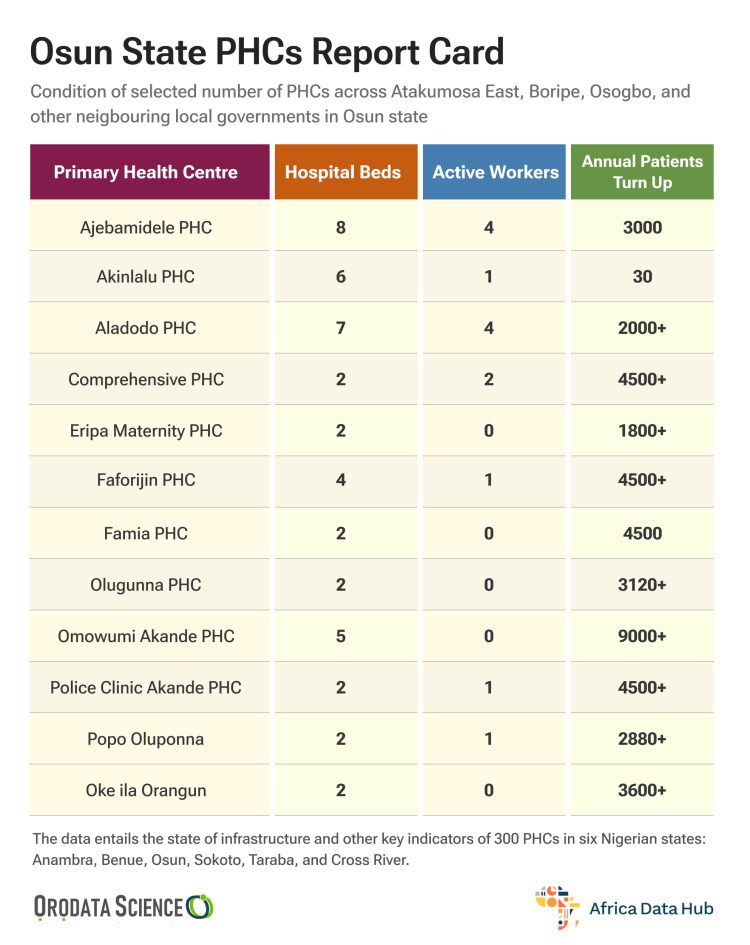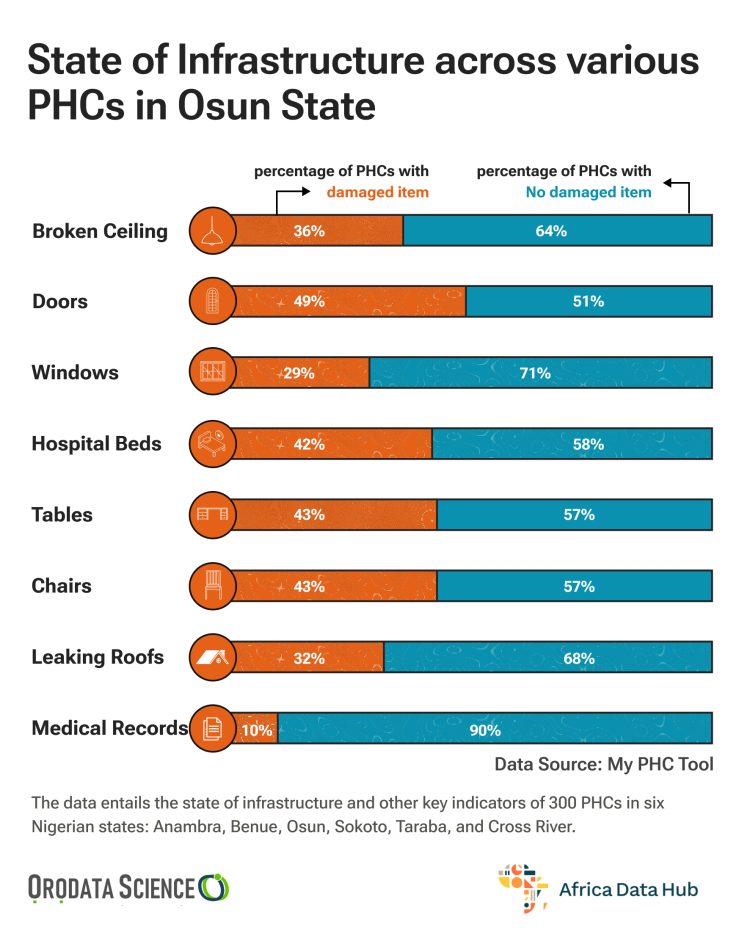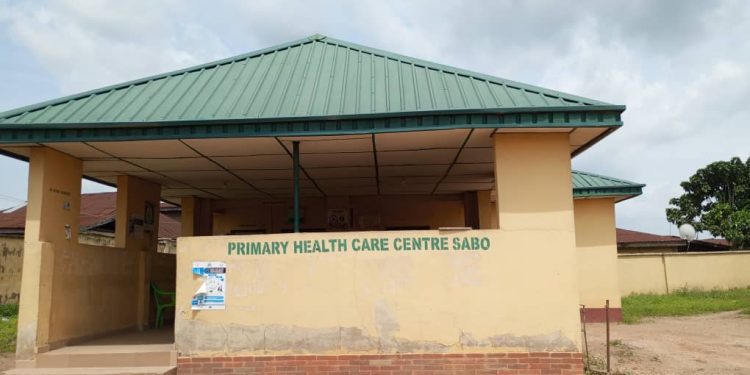A first-time patient at the Comprehensive Primary Health Centre, Iwara in Atakumosa East Local Government Area of Osun State would be welcomed into the facility with an interesting atmosphere that depicts the ruins that have become the lot of the facility.
Such a patient is turned between focusing on getting treated or being carried away by the poor state of the hospital with broken ceilings, damaged doors and windows, damaged hospital beds, damaged tables and chairs, and worst case, leaking roofs, during the rainy season.

While the PHC is in a bad state, the situation is almost similar with Ajebamidele PHC located at the Ajebamidele farm settlement after Ifewara in Atakumosa East LGA. PHCs visited in Boluwaduro, Boripe, Ayedire and Ife North LGAs also bore similar fate.

The fundamental premise of PHCs according to the World Health Organization (WHO) is to ensure that ‘all people, everywhere, have the right to achieve the highest attainable level of health.’
PHCs are also supposed to enhance access to quality healthcare services among community residents to enhance “integrated health services to meet people’s health needs throughout their lives; addressing the broader determinants of health through multisectoral policy and action; and empowering individuals, families and communities to take charge of their health.”
It however seemed that the poor status of the majority of the PHCs in Osun state are not equipped to deliver quality healthcare services to
Funke Okunnubi (not real name), a Community Health Extension Worker (CHEW) at Comprehensive PHC in Iwara, who remarked wittingly that there is nothing comprehensive about the PHC, explained how it has been difficult to provide basic services to patients.
With 2 hospital beds in 3 wardrooms, 3 CHEW and shortage of medical supplies, Okunnubi explained that the PHC is not equipped to perform its role in serving two communities effectively.
“Most times, we do not have what is required to give to patients and we even ask them to come back to the centre at another time when we believe there might be medical supplies.
“We usually do not refer patients, except when the case seems complicated. For instance, in the past one year, we have referred 3 cases and they were largely complicated childbirth cases,” she added.
In Ajebamidele PHC, the situation seems to be worse with no presence of health workers within the facility.
A community resident and patient at the PHC, Itunnu Ibidapo acknowledged that there are 2 health workers assigned to the PHC but none is actively practising at the site.
She explained that the community has however taken responsibility for engaging the services of a health worker to fill the void.
“What is the essence of a PHC if it is in bad shape and there are no doctors or nurses? Not even one. It is the community that has hired someone to treat us once in a while.
“Also, because the community only pays the nurse once in a while, she is not fully committed. But is is better than not having anyone to take care of patients at all,” Ibidapo added.

At the Olugunna PHC in Osogbo LGA, the situation is slightly different with the presence of a somewhat conducive facility even though there are reported cases of shortage of medical supplies. Basic equipment such as a delivery bed, bedpan, and fetal heart rate monitor are available in the delivery/labour ward.
There are five health workers and three support staff assigned to the PHC which has helped community members to access quality healthcare services.
Fisayo Orogbangba, a health worker at Ougunna PHC said “we are not operating at the best we should, but we are better off than some PHCs in the state.
“It is not a competition but we are privileged. We also know that some other PHCs are better equipped than us. The most important thing is for us to be able to save lives and cater for our beneficiaries,” she added.
Sharing his expert opinion on the poor state of PHCs in Osun, Mr Damilola Adenuyiwa, Public Health Expert and Programme Manager at the Legislative Advocacy Initiative for Sustainable Development Goals (LISDEL) said the state government, as well as local governments, must invest in their PHCs and ensure they are in good shape at all times.
Mr Ademuyiwa explained that “State and LGs must invest in their PHCs. They must implement the Primary Health Care Under One Roof (PHCUOR) Policy and ensure that all their PHCs are brought up to acceptable standards.
“This is essential as there are standards that must be adhered to in PHCs, if they must serve their real purpose. For instance, the minimum standard is that the facility should be fenced, water should be available, equipped with personnel and medical supplies among others.
He also implored community members to be involved by “holding both the government and facility managers accountable to what is going on in their PHCs. Whether or not the facilities are in good shape, community members would be the beneficiaries. So, community members must play active roles to keep the PHCs functional.”
The names of the health workers and patients are not their real names to conceal their identities.
This story was produced with the support of the Frontline Investigative Program and supported by the Africa Data Hub and Orodata Science.”

